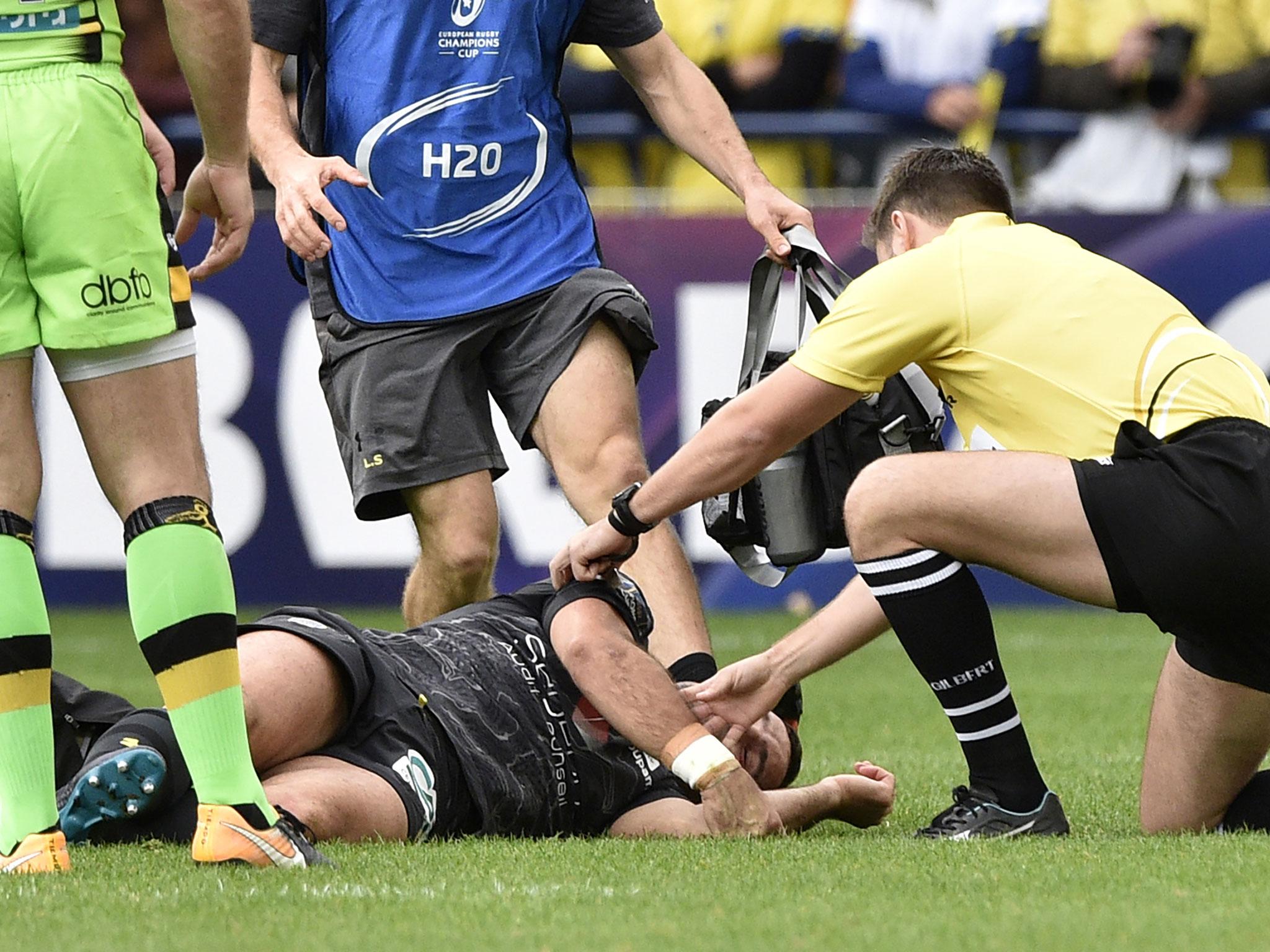Rugby's biggest problem isn't initiations, it's teams playing fast and loose with concussions
Rugby has come a very long way since the dark old days when players, coaches and fans used to treat brain damage as a joke but it has another quantum leap to take

Rugby’s administrators have a new sport: hauling players over the coals for making contact with an opponent’s head during a match.
Bans are being handed out like confetti, costing players win bonuses, appearance fees, reputational damage and potentially their place in the team.
Joe Marler, Nathan Hughes and Dylan Hartley were the latest players to be hauled in front of disciplinary panels this weeks for offences of varying degrees of recklessness which, in days gone by, would probably have passed unnoticed.
The men and women who participate in the sport, with all the associated risks which go with it, are the ones being punished for rugby's uncomfortable but entirely necessary crackdown on contact with the head.
Let’s get one thing clear: rugby has come a very long way since the dark old days when players, coaches and fans used to treat brain damage as a joke.
Whether through fear of litigation, media pressure or a genuine interest in protecting player’s health – or more likely a combination of all three – rugby’s authorities have raised their collective game over the past five year when it comes to dealing with concussion. Laws have been changed, protocols enhanced, medics empowered, players educated.
It may or may not be coincidence that this has coincided with an avalanche of new evidence linking repetitive head injuries to early on-set dementia – or indeed a $1billion settlement paid out by the NFL to former gridiron stars suffering from a neurological disease believed to be chronic traumatic encephalopathy (CTE) – but progress has, undeniably been made. Rugby is on the right path now.
But being on the right path doesn’t mean the job is done.
If rugby wants to truly demonstrate it is serious about concussion it has another quantum leap to take; any team demonstrably shown to have failed in its duty of care to a player by allowing them to return to the field when there is a clear suspicion of concussion – as was the case after Morgan Parra's skull connected with Luther Burrell’s knee last Saturday – must face consequences.

Three days after a dazed Parra was allowed to play on – to the obvious and immediate horror of BT Sport’s excellent commentary team of Ugo Monye and Ali Eykyn – a review nominally conducted by a previously unknown company called Allignin Performance found the Clermont scrum half had been ‘correctly permitted to return to the field of play after an initial Head Injury Assessment revealed no loss of consciousness’. Hold on a minute.
That despite referee Ben Whitehouse, stood just yards from the stricken Parra, initially stopping the game and stating ‘hold on lads, he’s been knocked unconscious here’.
Notwithstanding that only 10 per cent of concussions involve loss of consciousness there was very little to commend the rugby authorities latest attempt to alleviate blame from officials at all costs. It’s all the fault of those nasty players, you see.
Scandalously, Allignin’s perfunctory review did not see fit to actually seek evidence from the one man on the field in a position to judge if Parra had momentarily lost consciousness; the referee. Instead, ‘detailed information’ was sought from another person; Clermont medical representative, Dr Eliot Rubio.

You really couldn’t make it up. European Professional Club Rugby’s independent review into whether a potentially brain damaged player had been wrongly allowed to play on amounted to asking the one man with most to lose (apart from Parra of course) whether he’d done anything wrong. Surprisingly Dr Eliot Rubio found there was nothing to see here.
Instead, this: ‘While an audible comment from match referee, Ben Whitehouse, at the time of the event may have led to some confusion, Alligin Performance commended the official as he clearly stopped the match out of concern for the player's welfare.’
Horrendous.
With Allignen outsourcing their review to Dr Mike Rossiter, Consultant in Sport and Exercise Medicine, this smacked of the medical industry closing ranks to protect their own. After all, what could a referee possibly know about brain injuries?
World Rugby’s own guidelines state “Any clear or suspected signs or symptoms of concussion MUST result in immediate and permanent player removal.”
So why did Parra even have an HIA?

Allignin’s was just another exercise in absolving blame from employers who have once again failed spectacularly in their duty of care to an employee.
It’s not concussion and the highlighting of it which threatens rugby, but the ongoing mismanagement of it.
As long as players are allowed to return to play when there is clearly suspicion they have been concussed, the sport’s image, not to mention players’ brains, will continue to receive a kicking.
The biggest risk to participation in the sport is not students behaving bawdily – as was suggested this week - but medics and team coaches playing fast and loose with concussion protocols. Why wouldn’t a parent think twice about allowing their son or daughter participate in a sport which actively condones the process which permitted the stricken Parra to return to the field last Saturday?
When will a union, club, administrator or medic finally be held to account for mismanaging a player’s brain injury? It's not all the players fault, you know.
Join our commenting forum
Join thought-provoking conversations, follow other Independent readers and see their replies
Comments
Bookmark popover
Removed from bookmarks